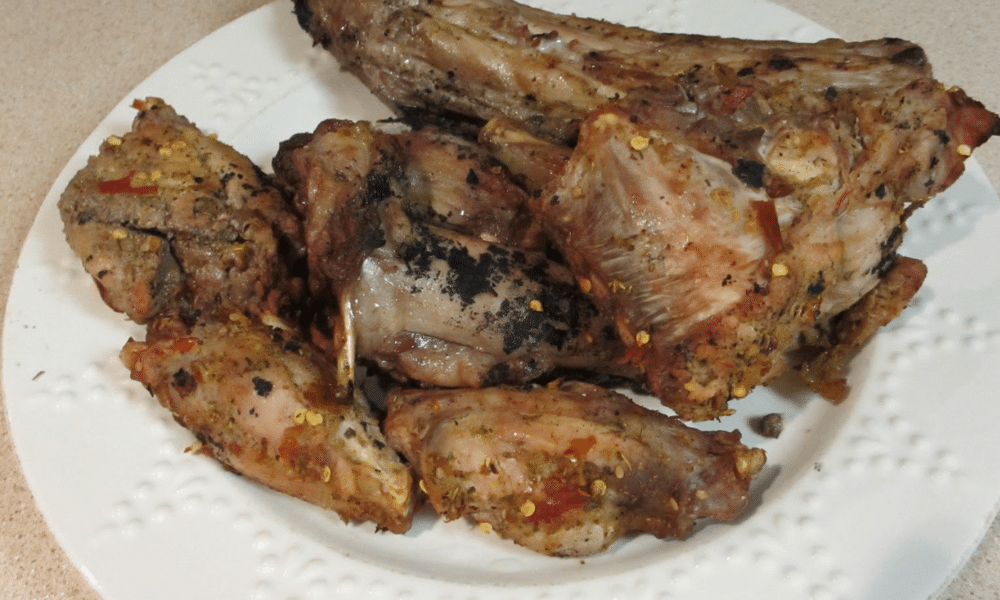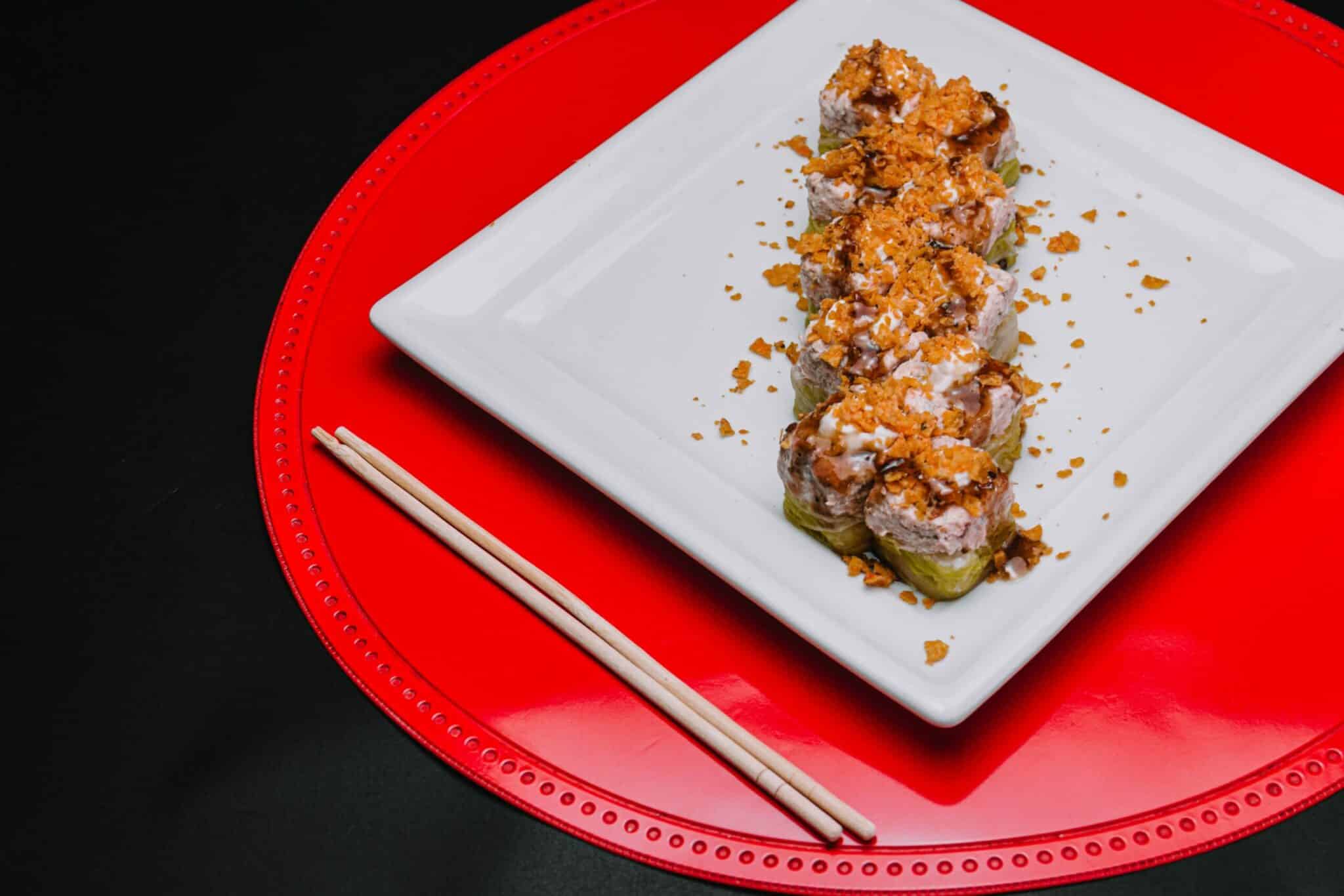Updated on November 11th, 2022
If you’ve ever wondered what iguana tastes like, you’re not alone. Iguanas are known among iguana eaters as the “chicken of the trees” because they taste like chicken. Iguana meat is delicious and can be used to make several different dishes. Although it doesn’t have the same taste like chicken, it’s surprisingly healthy, tasty, and highly nutritious. But before you start cooking with it, you should know that iguanas don’t actually eat chicken, and it actually tastes more like cooked hen or Peking duck. Also, the meat is tough and very hard to chew. While iguana meat is excellent for cooking, I don’t recommend eating it raw. Instead, stick to bugs and vegetables.
If you’re wondering what iguana meat tastes like, don’t worry about being scared. The meat is soft and mild and not difficult to chew. Iguanas typically eat the flesh from their legs, along their spine, and on their tail. They also enjoy eating very nutritious crickets. Iguanas can withstand the heat well. But if you’re worried about iguana’s toxicity, don’t give it a shot.
What is Iguana?
Iguanas are among the most giant lizards in the Americas, with a whiplike tail that accounts for about half of their total length. Iguanas, like other reptiles, are cold-blooded, egg-laying creatures with a remarkable ability to adapt to their surroundings.
The size, color, behavior, and endangered status of iguana species vary considerably. Some are common, such as the green iguana, while others are endangered, such as Fiji’s banded iguanas. The desert iguana and the chuckwalla are both native to San Diego County.
What does Iguana Taste like?
Iguana has a flavor that is similar to chicken but slightly fishier. Cooking iguana over an open flame with olive oil and spices produces the best results, and it’s frequently described as chicken with a lobster-like bite.
In some countries, such as South America, Mexico, and the Caribbean islands, iguana meat is considered a delicacy. Iguana meat has a texture similar to chicken, and seasonings can be used to make it taste like chicken.
Egg dishes, soups, and tacos can all benefit from iguana meat. It is primarily consumed in rural areas due to its low cost and excellent flavor. The slightly gamey flavor of iguana meat makes it ideal for spicy dishes.
However, iguana meat also goes well with other proteins. It’s lean and can be used in tacos or fajitas and eggs, stir-fry dishes, and vegetables sautéed. Iguanas are a sustainable food source that can aid in the fight against world hunger.
Iguana Meat is a Traditional Food in Which Country?
Iguana meat has long been a part of Mexican and Central American culinary traditions, particularly in Jalisco, Michoacán, and Colima. The iguana is a traditional food throughout Western Mexico in Fray Sahagn’s history of colonial Mexico, and he describes it as good to eat when properly prepared. Iguana meat is legal in the United States and several other countries, but due to CITES conventions, importation is prohibited.
In the region, the green iguana (Iguana iguana) has a distinct advantage over the black iguana (Ctenosaura pectinata), though both are eaten.
Before roasting or stewing the iguana, it must be parboiled in salt water for twenty to thirty minutes. Stews (guisados), pozole, birria, roasted in tacos and flautas, roasted and finished with mole, and even sauteed with almonds are all everyday iguana recipes. The Wikibooks Cookbook project has two recipes for traditional preparation. After the Florida Wildlife Agency encouraged residents to kill green iguanas on their own property, residents in parts of South Florida have begun cooking iguana meat. There have been efforts in Puerto Rico, where iguanas are an invasive species, to promote iguana consumption.
Is it Safe to Eat Iguana Meat?
Because the Galapagos Islands’ island iguanas are not considered endangered, they are hunted and eaten. Because of their long powerful feet, scaly skin, and muscular jaws with long sharp teeth are sometimes referred to as “land crocodiles.”
Iguana meat can be fried and devoured once they’ve been cleaned. The green part of the iguana can also be eaten, but it must be thoroughly cooked first.
In addition, iguana meat is safe to eat if prepared properly. The iguana must be alive when killed and transported to a slaughterhouse for preparation. Workers cut its throat while standing vertically to allow the blood to drain into buckets.
The iguanas are then scalded, which involves dipping them in a hot water bath to remove the skin and make cleaning easier.
Is Iguana Meat Unhealthy?
If you cook it thoroughly, iguana meat isn’t rotten for you, but it’s not a food source I’d rely on for survival. It is best to leave them in the wild to fulfill their purpose.
Protein-rich iguana meat is low in fat and cholesterol. Calcium, potassium, sodium, and vitamins B6, B12, and C are abundant. Magnesium, selenium, and zinc can be added to the minerals in iguana eggs. If done correctly, the meat will be delicious, but it could make you sick if done incorrectly. Also, excessive consumption is not recommended.
Iguana meat is delicious and healthy, and it should be cooked thoroughly. The meat is usually fatty, but it’s worth the effort. Iguana meat is rich in protein and low in fat and is an excellent addition to soups, tacos, and curries. While it may not suit your taste buds, it’s a delicious treat! Just remember to wash it thoroughly and cook it well.
Is it Possible to Freeze Iguana Meat?
Yes, iguana meat can be frozen, and Iguana meat can be stored in the freezer for up to 6 months. If you follow proper freezing guidelines, freezing iguana meat is an excellent way to preserve iguanas for longer shelf life.
To maximize shelf life, make sure the iguana’s core temperature is between -4 and 5 degrees Fahrenheit before freezing it. The lower the temperature, the longer the meat can safely be kept frozen before spoiling.
Iguanas Meat Should not be Eaten
Animal protein found in meat causes organ damage in iguanas. Eating meat can make your iguana sick, and ingesting it over time can have various consequences. It will stunt your iguanas’ growth and make them smaller, less healthy, and unhappy. It can also result in early death.
Some of you may be concerned that your iguana accidentally eats meat-based foods, which is unlikely to cause any harm and is unimportant. In fact, there is evidence that iguanas eat meat in the wild on occasion, most likely when other food sources are scarce. While an occasional errant titbit won’t hurt, feeding meat-based products regularly is not recommended.
How is Iguana Meat Prepared?
The meat from iguanas is generally mild-flavored and low in fat. Its meat is typically found on the legs, along the spine, and the tail. The rib meat isn’t worth eating, but it’s worth it for curries. If you want to prepare iguana meat as the main course, the de-boned iguana is the best option. The meat can also be added to soups and curries.
The best way to prepare iguana meat is to cook it in a Dutch oven. Pour boiling water over the iguana and allow it to simmer for 45 minutes. Then, you can serve it with potatoes, corn, onions, and lima beans. You can even season it with Worcestershire sauce. If you’re unsure about the taste, you can always use crickets or other food items.
A good iguana dish includes a sauce made from aji Amarillo paste. This sour-cream-like paste tastes great on iguana meat. For an extra kick, serve the meat with the eggs. Then, dig in. You’ve got yourself a meal! It will be both delicious and healthy. And don’t forget to try some iguana recipes!
Is Iguana Meat and Alligator Meat Similar?
Iguana meat is almost white and milder than that of an alligator. However, it isn’t as delicious as alligators, so you should be careful to keep iguana meat safe for your pets. Ideally, you should serve iguanas with a diet rich in fruits and vegetables. But don’t make iguanas eat avocados, as they are toxic for the animal.
Iguana meat is mild and is more similar to chicken than alligators. It’s not surprising that iguanas have been eaten for centuries by humans. In some parts of Latin America, iguanas are considered luxury food and are consumed as a delicacy.
For you, an Iguana? The Dangers of Eating Reptiles from a Biological Standpoint
People can contract diseases like trichinosis, pentastomiasis, gnathostomiasis, and sparganosis by eating the meat of reptiles like crocodiles, turtles, lizards, or snakes, according to a study published last year in the International Journal of Food Microbiology (or iguanas, right).
The study’s lead author and a researcher for the World Health Organization (WHO), Simone Magnino, told the Spanish Foundation for Science and Technology.
“The most obvious microbiological risk is the presence of pathogenic bacteria, such as Salmonella, Shigella, Escherichia coli, Yersinia enteroliths, Campylobacter, Clostridium, and Staphylococcus aureus, which can cause illnesses of varying severity.”
According to this expert, data on public health risks are still inconclusive because there is no comparative data on eating this meat and pathogen prevalence. In addition, there are few published research articles about illnesses linked to eating reptile meat.
Experts advise people to freeze the meat, just as they would other animal-based foods because this kills parasites. Pathogens can also be killed by industrial processing and proper cooking (not leaving the meat raw).
Simone Magnino, Pierre Colin, Eduardo Dei-Cas, Mogens Madsen, Jim McLauchlin, Karsten Nöckler, Miguel Prieto Maradona, Eirini Tsigarida, Emmanuel Vanopdenbosch, and Carlos Van Peteghem are among those who have contributed to this work. International Journal of Food Microbiology 134 (2009) 163, September 2009. “Biological risks associated with consumption of reptile products.”
Conclusion
Iguana meat is also called chicken of the trees. The meat contains more protein than chicken and is low in fat. It can be used in a variety of different dishes. The meat is thick and needs to be cooked for a long time to be digestible. If you’re not an iguana lover, you can still enjoy its delicious meat in a restaurant. So don’t be shy about trying it.
Iguanas are vegetarian and can eat fruits. But if you’re wondering what it tastes like, don’t eat it. It’s not safe for pets. As the name suggests, iguanas are not recommended to eat; instead, they’re meant to ingest plants and insects. While iguanas don’t like fruits, they can ingest them.

